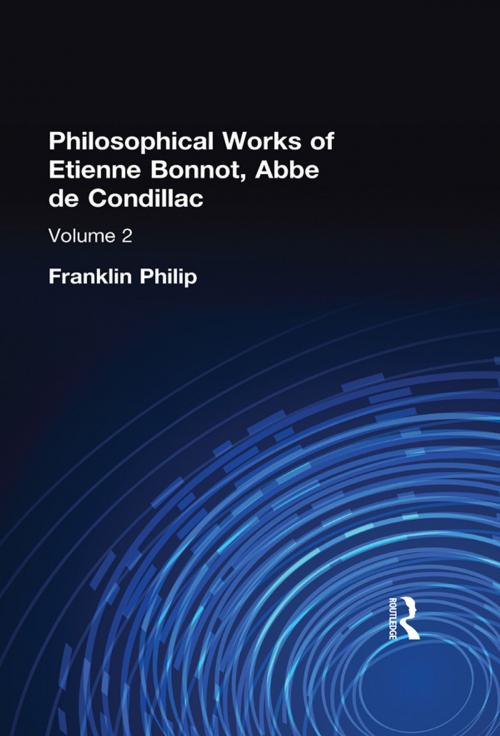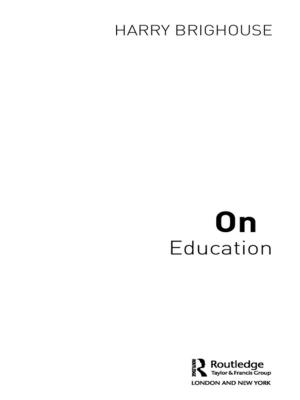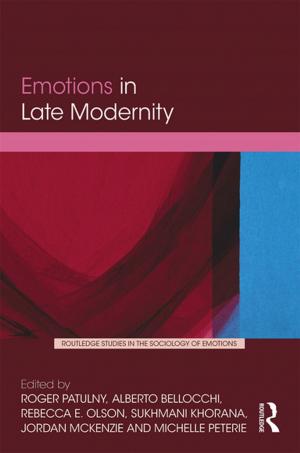Philosophical Works of Etienne Bonnot, Abbe De Condillac
Volume II
Nonfiction, Health & Well Being, Psychology| Author: | ISBN: | 9781317767893 | |
| Publisher: | Taylor and Francis | Publication: | June 17, 2014 |
| Imprint: | Psychology Press | Language: | English |
| Author: | |
| ISBN: | 9781317767893 |
| Publisher: | Taylor and Francis |
| Publication: | June 17, 2014 |
| Imprint: | Psychology Press |
| Language: | English |
This is the first English translation of Condillac's most influential works: the Essay on the Origins of Human Knowledge (1746) and Course for Study of Instruction of the Prince of Parma (1772).
The Essays lay the foundation for Condillac's theory of mind. He argues that all mental operations are, in fact, sensory processes and nothing more. An outgrowth of Locke's empirical account of ideas and sensations as a source of knowledge, Condillac's theory goes beyond Locke's foundations, introducing his universal method for understanding any complex entity: the reduction of all matters to their origins and then to their simplest forms.
The Course, originally written to teach Prince Ferdinand of Parma to think and to develop good habits of mind following the principle of association of ideas, covers grammar, writing, reasoning, thinking, and ancient and modern history. Philip writes in the introduction: "[the] mind is moldable to reason and to 'nature' which gave it a model and provides the ultimate authority for all it can know or do."
This is the first English translation of Condillac's most influential works: the Essay on the Origins of Human Knowledge (1746) and Course for Study of Instruction of the Prince of Parma (1772).
The Essays lay the foundation for Condillac's theory of mind. He argues that all mental operations are, in fact, sensory processes and nothing more. An outgrowth of Locke's empirical account of ideas and sensations as a source of knowledge, Condillac's theory goes beyond Locke's foundations, introducing his universal method for understanding any complex entity: the reduction of all matters to their origins and then to their simplest forms.
The Course, originally written to teach Prince Ferdinand of Parma to think and to develop good habits of mind following the principle of association of ideas, covers grammar, writing, reasoning, thinking, and ancient and modern history. Philip writes in the introduction: "[the] mind is moldable to reason and to 'nature' which gave it a model and provides the ultimate authority for all it can know or do."















